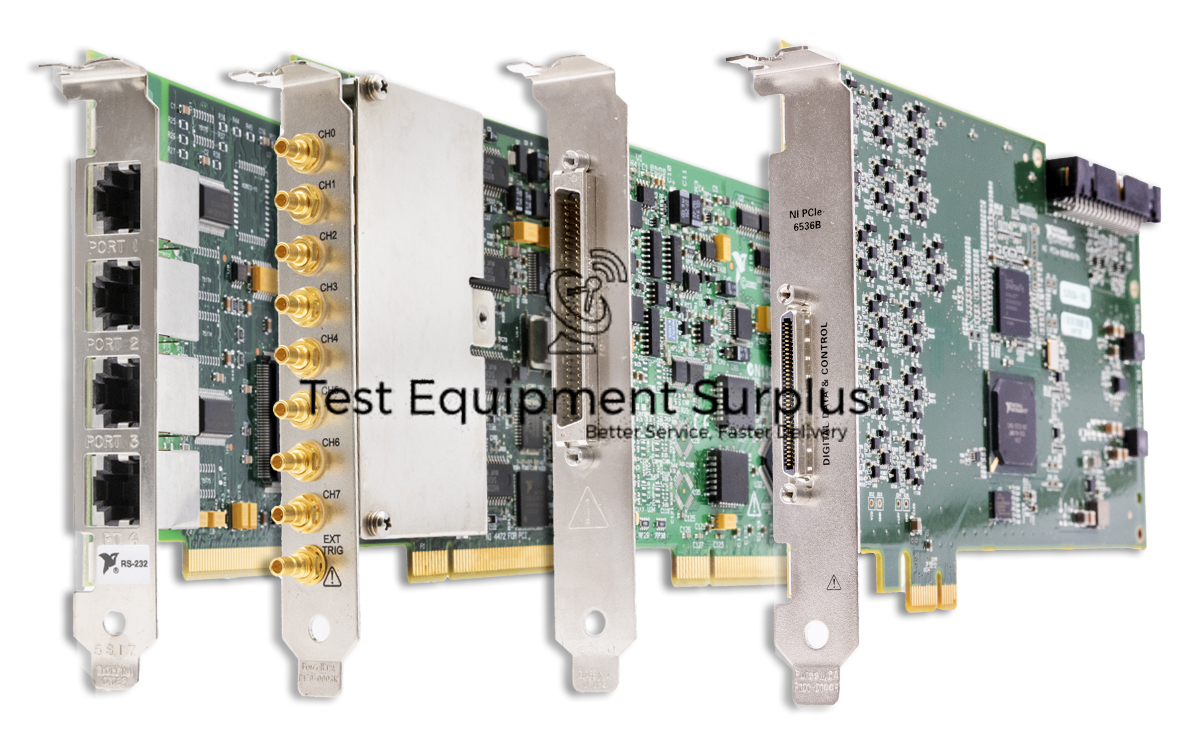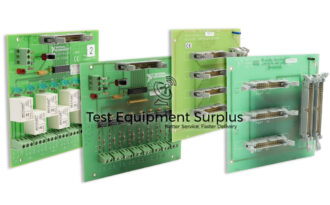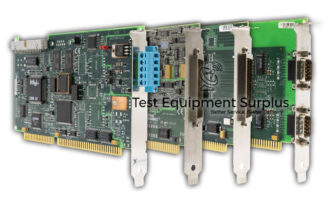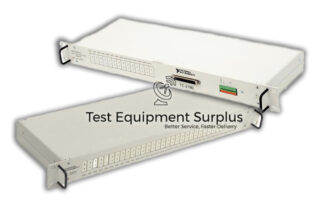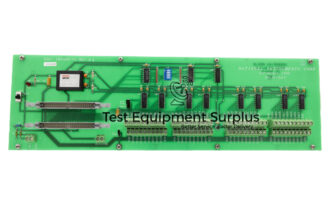Description
The National Instruments PCI-CAN/2 CAN Interface Device (Part Number: 777357-02) is a robust, dual port high speed CAN interface designed for seamless integration with NI data acquisition, motion, and vision devices. It features an advanced optical isolation technique to ensure reliable operation and includes a timestamp feature for precise data logging.
Equipped with a TJA1041 built-in transceiver module, the device adheres to the ISO 11898 interface type standard and supports a transfer rate of up to 1000 kbps, with a minimum baud rate of 40 kbps. The typical current rating is 850 mA, ensuring efficient power consumption.
With physical dimensions of 8.150 x 4.4 inches and a DB 9 connector for each channel, the interface device is designed for easy installation and connectivity. It is compatible with a range of software including LabVIEW, LabWindows/CVI, Microsoft C/C++, Visual Basic, and Borland C/C++, providing flexibility in programming and control.
The device operates on a power supply of +5 VDC, requiring up to 850 mA, and is powered by an efficient 80386EX microprocessor, enabling reliable and fast data processing and communication capabilities.
| Specification | Details |
|---|---|
| Product Name | National Instruments PCI-CAN/2 CAN Interface Device |
| Part Number | 777357-02 |
| Type | Dual port high speed CAN Interface |
| Compatible Devices | NI data acquisition, motion, and vision devices |
| Isolation Technique | Optical isolation |
| Timestamp Feature | Yes |
| Built-in Transceiver Module | TJA1041 |
| Interface Type | ISO 11898 |
| Transfer Rate | Up to 1000 kbps |
| Minimum Baud Rate | 40 kbps |
| Current Rating | 850 mA (typical) |
| Physical Dimensions | 8.150 x 4.4 inches |
| Connector Type | DB 9 connector for each channel |
| Software Compatibility | LabVIEW, LabWindows/CVI, Microsoft C/C++, Visual Basic, Borland C/C++ |
| Power Requirement | +5 VDC, 850 mA |
Question 1: What are the physical dimensions and connector type of the National Instruments PCI-CAN/2 CAN Interface Device, and with which programming software is it compatible?
Answer 1: The National Instruments PCI-CAN/2 CAN Interface Device uses a DB 9 connector for each of its dual ports.
Question 2: What type of connector does the National Instruments PCI-CAN/2 CAN Interface Device use for each of its dual ports?
Answer 2: The National Instruments PCI-CAN/2 CAN Interface Device has physical dimensions of 8.150 x 4.4 inches and features a DB 9 connector for each channel; it is compatible with programming software such as LabVIEW, LabWindows/CVI, Microsoft C/C++, Visual Basic, and Borland C/C++.
Question 3: What are the dimensions and connector type of the National Instruments PCI-CAN/2 CAN Interface Device, and which software platforms is it compatible with for programming and control?
Answer 3: The National Instruments PCI-CAN/2 CAN Interface Device has physical dimensions of 8.150 x 4.4 inches and is equipped with a DB 9 connector for each channel; it is compatible with software platforms such as LabVIEW, LabWindows/CVI, Microsoft C/C++, Visual Basic, and Borland C/C++ for programming and control.
Question 4: What is the purpose of the optical isolation technique in the National Instruments PCI-CAN/2 CAN Interface Device?
Answer 4: The purpose of the optical isolation technique in the National Instruments PCI-CAN/2 CAN Interface Device is to ensure reliable operation by preventing electrical noise and surges from affecting the data integrity and the device’s performance.
Question 5: What are the main features and specifications of the National Instruments PCI-CAN/2 CAN Interface Device, including its part number, speed capabilities, and software compatibility?
Answer 5: The National Instruments PCI-CAN/2 CAN Interface Device, part number 777357-02, is a dual port high-speed CAN interface that supports transfer rates up to 1000 kbps with a minimum baud rate of 40 kbps, and features optical isolation and timestamp capabilities for reliable data logging. It is equipped with a TJA1041 transceiver, adheres to ISO 11898 standards, and is compatible with software such as LabVIEW, LabWindows/CVI, and various

